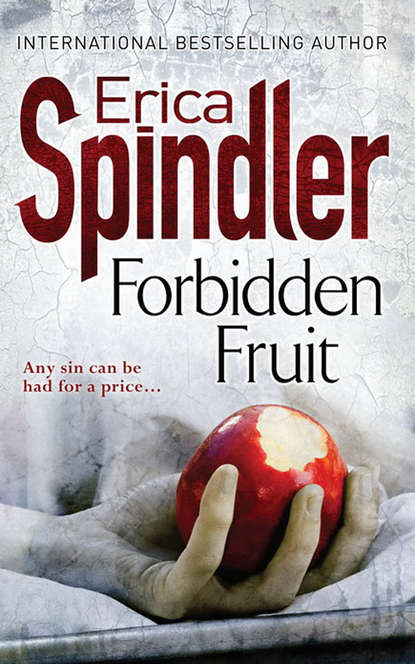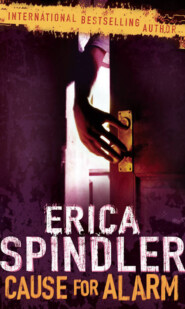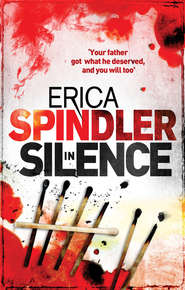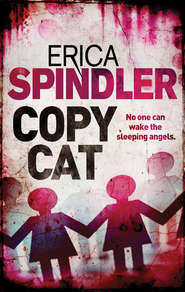По всем вопросам обращайтесь на: info@litportal.ru
(©) 2003-2024.
✖
Forbidden Fruit
Автор
Год написания книги
2018
Настройки чтения
Размер шрифта
Высота строк
Поля
Her behavior had come out of nowhere. She had looked forward to the birth of their first child. Her pregnancy had been an easy one; she had suffered from neither morning sickness nor mood swings. They had talked about all the things this child would do and be. Other than her absolute conviction that she carried a boy, her attitude about motherhood had seemed completely normal.
Now this. A shudder of fear moved over him. What would he do if he had lost her? If the woman he had known and loved so desperately had ceased to exist forever? How would he go on? He loved her beyond reason; he had from the first.
Inside the nursery, the attendant finished feeding and burping Philip’s daughter and laid her in her crib. Philip watched, seeing instead Hope as she had looked the night they first met. He had been in Memphis on business; they’d been introduced by friends. She had been laughing, her head tipped to the side, her long, silky hair falling softly against her cheek. He’d had the urge to touch it, to bring the dark strands to his lips to test their texture and taste. He could recall the exact rose shade of her mouth, could recall the way she’d pursed her lips in amusement, could remember that he had become aroused just watching her speak.
She had turned and met his eyes. He’d sensed that she knew exactly what he was thinking, that she was glad he was thinking it. In that moment, he had fallen madly in love with her. It had been as simple, and as complicated, as that.
That night and for the remainder of his business trip, they had been inseparable. He had told her everything about himself, and she had shared her life with him. The tragic story of her parents’ accidental death while traveling in Italy, of how she had been left alone in the world at seventeen, had touched him deeply.
Something about her had made him feel like the most powerful, the most important man in the world. He had wanted to shield her from the harsh world, had wanted to protect her from all of life’s unpleasantness. He had wanted to bring her into his charmed circle.
If he had been a less cautious man, he would have proposed on the spot. Instead, he had waited six long, agonizing weeks.
Family and friends had thought him insane until they met her. Then they, too, had fallen under her sweet spell. Even his demanding, ever-critical parents had thought her the perfect choice.
Not that it had mattered what they thought. He had been prepared to defy them, he had been prepared to give up everything for her.
Their wedding night had been an experience beyond his fantasies. She had done unimaginable, incredible things to his body, yet with such sweet, almost tentative innocence, that he had felt as if he were deflowering a virgin. Even now, standing in plain view of the world, his life in turmoil, thinking of that night brought swift, stunning arousal.
Sometimes he felt as if his life revolved from night to night, from one opportunity to make love with her to the next. Those times when she couldn’t—or wouldn’t—were a kind of torture beyond his previous experience. No woman before Hope had had such a hold on him; it was as if without her his heart couldn’t beat.
“There you are.” Hope’s doctor came up to stand beside him. Harland LeBlanc had delivered a host of St. Germaine babies, and although nearly sixty, he looked a decade younger. Since the man was considered the top obstetrician in New Orleans, Philip took some comfort in knowing Hope had the best care available.
The older man motioned to the nursery. “You have a beautiful daughter, Philip. In fact, I don’t think I’ve ever seen a more beautiful infant.”
Philip looked at the other man, then returned his gaze to the nursery window. “Yet, Hope can’t bear to look at her. She’s yet to hold her. She won’t even consider a name.”
“I know it’s been difficult, but—”
“Difficult?” Philip said, his tone caustic. “I don’t think you do know, Harland. I don’t see how you can. You weren’t there this morning when Hope swore at me. When she told me she hated me. All because I wanted to pick out a name for our daughter.” He drew a painful breath. “The way she looked at me was…chilling. I never thought my wife would look at me that way.”
The physician laid a hand reassuringly on Philip’s shoulder. “Believe it or not, I do understand what you’re going through. I’ve seen this type of behavior before, and it will pass. Everything is going to be all right, Philip.”
“Are you so certain of that?” Philip drew a hand across his forehead. “What if it doesn’t pass? I couldn’t bear to lose her. She’s everything to me, she’s—” He cleared the lump from his throat, feeling exposed and foolish. He shifted his gaze to the nursery and his sleeping daughter. “I love my wife, Harland. Too much, I sometimes think.”
The doctor gave Philip’s shoulder a comforting squeeze, then dropped his hand. “What Hope’s going through isn’t as uncommon as you might imagine. A surprising number of women experience depression after childbirth. On occasion, the depression is so severe, so all-encompassing, the woman abandons her family. Or worse.”
Philip met the other man’s gaze once again. He lifted his eyebrows at the physician’s solemn expression. “Worse, Harland?”
“Women in the grip of this blackness have killed their newborns, Philip. As horrifying and foreign as that may seem.”
Philip made a sound of shocked disbelief. “Surely you’re not suggesting that Hope might…that she could…kill our child?”
“Of course not,” Harland said quickly, his tone confident. “But I do think we should keep her here a few more days. We need to monitor her. Just to be sure.”
Dear Lord. Just to be sure? Of what?
Fear thundered through Philip, taking his breath, stealing the remnants of his peace of mind. Harland LeBlanc, Philip realized, considered top in his field, a doctor who had seen everything, was worried. More worried than he wanted to let on.
Philip breathed deeply through his nose, working to steady himself. But Harland didn’t know Hope the way he, her husband, did. All she needed was a return to normalcy. She needed to be surrounded by her things and the people who cared about her.
“Do you really think that’s necessary, Harland? Hope needs to be home. Our baby needs to be home. Once there, Hope will adjust. I know she will.”
“What if she doesn’t? Postpartum depression is caused by the tremendous imbalance of hormones in a woman’s body. Hope has no control over these feelings she’s having, she’s awash in them. She’s not trying to be difficult or unreasonable.”
The doctor shook his head. “What if I send her home too early and she doesn’t adjust? What if I send her home and the unspeakable happens? I don’t want to take that chance.” He met Philip’s gaze evenly. “Do you, Philip?”
The unspeakable. Or worse. Philip swallowed hard. “No. Of course not.”
“Good. Your wife needs you now. You say you love her, well, now’s the time to prove it.”
Philip willed away his frustration and selfish fears. Hope needed him. His daughter needed him. He had to be strong. “What can I do?” he asked. “Just tell me what I can do.”
“Be supportive. Understanding and loving. I know it’s hard, but you must remember that Hope is not in control of her emotions. She’s as frightened as you are right now. Probably more. She needs time. She needs your patience and love.”
Philip turned his gaze to his sleeping daughter, so tiny and helpless his heart broke for her. She needed her mother. She needed to go home. “And if my love and support aren’t enough? What then, Harland?”
For a moment, the physician said nothing. Then he sighed. “They’ll have to be, Philip. Right now, you don’t have any other options.”
Chapter 3
Hope awakened with a start. Breathing hard, clammy with sweat, she moved her gaze over the dimly lit room, expecting to see the outfittings of the third-story bedroom she had grown up in. Instead, she saw the simple, functional furnishings of her hospital room.
Hope drew in a deep, shuddering breath, relief spiraling through her. She was in New Orleans. She was Hope St. Germaine; the River Road house was far away. Part of a previous lifetime, someone else’s lifetime.
Hope drew in another deep breath, the effects of the nightmare still clawing at her. In it, she had been back at The House, crouched low and spying on a couple having sex. Only, in the dream, it had been her daughter on the bed, her daughter performing the lewd sex acts.
Yet, when her whore-child had looked over her shoulder, as if sensing Hope’s spying gaze, it was her own face Hope had seen staring back at her.
Making a helpless sound of fright, Hope pulled herself into a sitting position. She clutched the bedding, willing away the image from the dream. She knew what was happening to her; she knew why, night after night, she was being tormented with nightmares of the past she had left behind.
The Darkness was upon her, taunting and challenging. It thought it had won already.
No! Hope brought her trembling hands to her face. She wouldn’t let The Darkness win. She couldn’t. She had worked too hard for all she had achieved to succumb now.
Hope hugged her knees to her chest. She rocked, her head pressed to her knees, her mind whirling. Who could she turn to for help? Who could she trust? Philip was losing patience with her. Their family and friends were acting strangely, distant and suspicious. She saw the questions in their eyes. She saw the disapproval in their expressions. How long until someone uncovered the truth about her past? How long until the life she had built for herself crumbled to bits beneath her feet?
She had to accept her child; she had to behave like a doting, besotted mother. She had to behave as if she didn’t see her daughter’s vile core, pretend she didn’t see that the beautiful fruit was spoiled by worms.
Tears, hot and bitter, welled up in her eyes and slipped down her cheeks. But when she held her daughter, how would she keep her revulsion from showing? How would she be able to hide her despair and feign affection? She couldn’t; she knew she couldn’t.
Hope threw aside the covers and climbed out of bed. She crossed to her half-open door, the linoleum floor cool against her bare feet. She peeked out at the deserted hallway and nurses’ station. She heard a woman’s weeping from down the hall, heard another’s comforting murmur.
The Vincent woman had lost her baby. Philip had shared that information with her earlier today, she supposed in the hope of making her thankful for their own baby’s good health. Instead, she had wished it was her own child who had been taken. If the Lord had chosen her baby, her problems would have been solved.
But the Pierron daughters were strong with The Darkness that beat inside them; the Pierron daughters never died.
She had to escape, she thought, frantic suddenly. She had to get out of this place and breathe fresh air; she needed to be away from the constant prying, the insufferable compassion, of the hospital staff. She had to find someone who would understand and help her.











